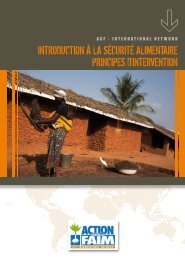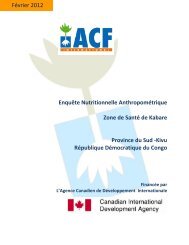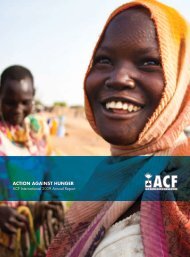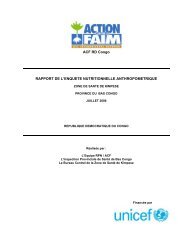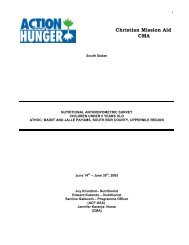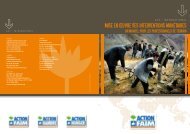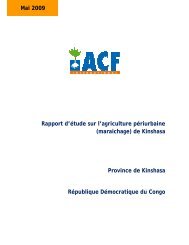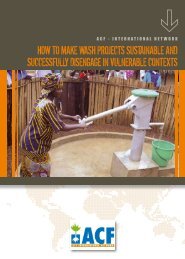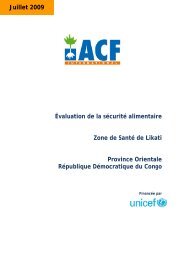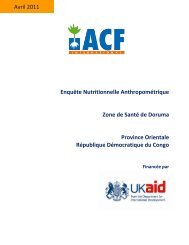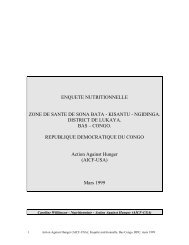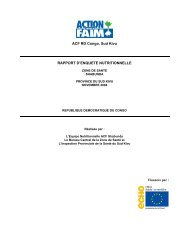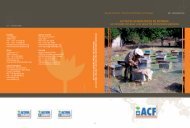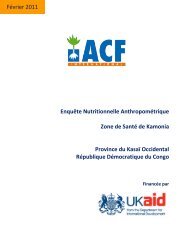Income-Generating Activities - Action Against Hunger
Income-Generating Activities - Action Against Hunger
Income-Generating Activities - Action Against Hunger
You also want an ePaper? Increase the reach of your titles
YUMPU automatically turns print PDFs into web optimized ePapers that Google loves.
Field handbook • Scientific and Technical Department<br />
Lack of guarantees, the high financial costs of managing credit and savings in<br />
small quantities, together with the risk of non-payment, are some of the reasons<br />
that vulnerable people are categorized as non-bankable by the commercial financial<br />
sector.<br />
In this context MFIs have grown up and been supported. They are mainly dedicated<br />
to offering micro credit though some also offer savings systems and other services,<br />
such as micro leasing. These types of credit services are not necessarily suitable for<br />
the most vulnerable population, given that they have high interest rates, usually a<br />
few points higher than those of the market, short grace periods, short repayment periods<br />
and quotas to be paid weekly or every two weeks. This type of credit is usually<br />
given in order to finance productive activities and not for consumption.<br />
ACF believes that micro credit is not the most adequate financial response for the<br />
most vulnerable people, or for the creation of new activities that need an initial period<br />
before they start to generate incomes, or those that, due to their innovative nature,<br />
can suppose a risk. For certain agricultural activities whose productive cycles are<br />
long and whose dependence on climatic conditions also make them risky, micro credit<br />
does not offer an adequate solution.<br />
While ACF does not directly offer micro credit, we can work in coordination with<br />
MFIs and strengthen their services, facilitating the access of the beneficiary population<br />
to their services and putting them in contact. In addition to the reasons explained<br />
above, ACF does not work directly in micro credit because we do not have the longterm<br />
objective of remaining in the zone and our legal status does not correspond to<br />
that of a banking entity.<br />
IV. THE FOOD SECURITY TEAM FOR IMPLEMENTING IGA<br />
Even though a team is needed from the beginning in order to define the objectives<br />
of the programme and the activities that will be developed, once the funds are available<br />
it will be necessary to define the structure of the team that will be in charge of<br />
the intervention. This will depend on the type of intervention, the numbers of beneficiaries<br />
expected and the geographic conditions of the zone. The recruiting process<br />
must allow us to select the most suitable candidates and to be assured that they have<br />
the capacity to carry out the tasks established in the job descriptions. (See Appendix<br />
7 for some examples of job descriptions).<br />
The role of social workers is fundamental to motivate the beneficiaries, promote<br />
their participation and their ownership of the programme. It is necessary to reach a<br />
balance between technical profiles, specializing in the sectors in which the IGA will be<br />
working, and economic profiles. Experience and motivation, together with knowledge<br />
of the context and the issues to be dealt with are essential characteristics of the team<br />
members.<br />
INCOME GENERATING ACTIVITIES: A KEY CONCEPT IN SUSTAINABLE FOOD SECURTIY<br />
47



